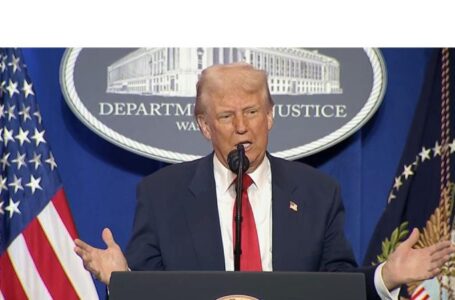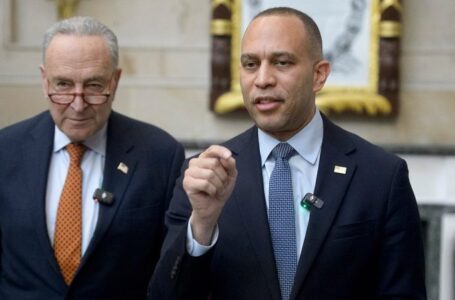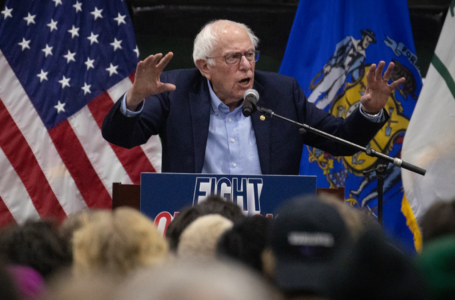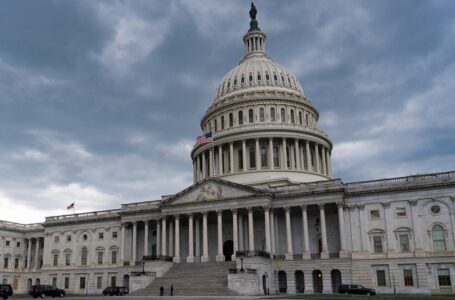Trump blasts Biden’s DOJ: They tried to turn US into a ‘corrupt communist’ third world country
Mark Robinson is a Trump problem of Trump’s own making
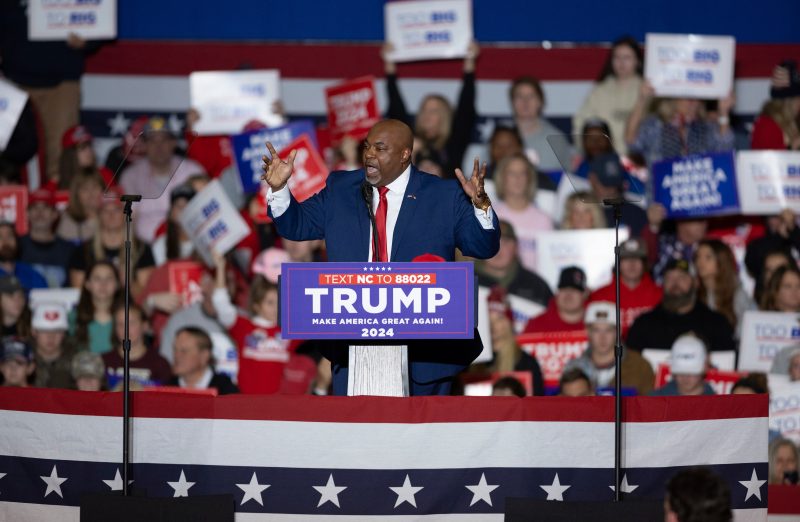

For years, Donald Trump has directly and indirectly foisted damaging candidates on the GOP, in ways that have obviously cost his party dearly — up to and probably including control of the Senate.
It’s not just his endorsements of several flawed statewide candidates who went on to badly underperform and lose key races; it’s also the ethos he’s created in the party. He’s placed a premium on owning the libs and devotion to Trump, and he’s devalued political bona fides. He has effectively encouraged his party to overlook a Trump-loyal candidate’s very obvious baggage, by dismissing it as lies from the liberal media or even viewing it as an asset.
It’s all worked out a lot better for Trump than for his party, thanks to his unique ability to stay viable despite his own litany of controversies and mounds of baggage. Other candidates have demonstrated far less talent for that.
But for once, the pattern could be creating a real problemfor Trump personally.
The big news Thursday was a CNN report that North Carolina Lt. Gov. Mark Robinson (R), the GOP’s nominee for governor, whom Trump helped dominate in his primary, posted a series of problematic things on a pornographic message board more than a decade ago.
Among the comments: calling himself a “black NAZI,” voicing support for bringing back slavery and expressing a proclivity for transgender pornography.
Robinson denies he posted these things and said he’s staying in the race. “Let me reassure you: The things that you will see in that story, those are not the words of Mark Robinson,” Robinson said in a video posted Thursday afternoon before CNN’s story dropped.
But Republicans who were already worried about Robinson hurting the GOP ticket in a vital swing state — one of three especially key ones for Trump — must now be pulling their hair out. And there aren’t many good answers for the party at this point.
Some Republicans are suggesting Robinson could lose their support or should even drop out, and there could soon be more pressure on him to do the latter. A Trump campaign official told The Washington Post the campaign hasn’t reached out directly to push Robinson out of the race.
That pressure could be brought to bear not just because of the revelations but also because Robinson has trailed his Democratic opponent, state Attorney General Josh Stein (D), by double digits in most recent high-quality polls.
But the timing of this is particularly troublesome for the GOP. There is a midnight deadline for a candidate to drop out and be replaced as the nominee. And even at that point, it appears that state law doesn’t allow for ballots to be reprinted; voters would have to choose Robinson’s name in order to vote for the replacement.
(This is all subject to litigation, of course, and the state Supreme Court recently did Trump a solid by allowing ballots to be reprinted without Robert F. Kennedy Jr.’s name on them after he suspended his campaign, overruling the state board of elections.)
There is a possibility that this could ultimately turn out somewhat okay for the GOP — particularly if Robinson drops out in time to be replaced as the nominee, and especially if they can somehow get ballots reprinted.
But failing the latter, voters would be confronted with choosing Robinson’s name to vote for his replacement (which history suggests is a significant hurdle). And if Robinson won’t get out, he would remain in the race as a potentially significant liability.
Precisely how much any of it could hurt Trump is an open question.
Plenty of voters in recent years have shown they can and will split their tickets when Republicans nominate undesirable candidates. For instance, Trump running mate JD Vance won his 2022 Senate campaign in Ohio by just six points, while other statewide Republicans won by around 20 points. Trump-backed candidates also far underperformed other Republicans in states such as Arizona, New Hampshire and Pennsylvania.
And it’s generally thought that presidential candidates can be bigger drags on down-ballot races, rather than vice versa. The latter is called a “reverse coattails” effect.
But if even a small handful of people look at Robinson and it sours them on the GOP ticket as a whole, that could matter greatly. North Carolina was decided by just more than a point in 2020, and it’s been polling very closely in 2024. Not only that, but it appears to be one of three states Trump is emphasizing as his most likely path to victory, with the others being Georgia and Pennsylvania.
This whole thing was also utterly predictable and potentially avoidable, but for Trump. Robinson has been saying highly controversial things for years, but he wound up getting only token opposition in the GOP primary. Trump helped grease the skids by signaling as far back as June 2023 that he would be supporting Robinson.
As much as that actual endorsement, though, it’s about Trump making Republicans believe they can win with candidates such as Robinson, despite all the evidence to the contrary in swing states in recent years. Robinson, a candidate who probably wouldn’t have stood a chance in a GOP primary a decade ago, wound up winning the primary by 46 points.
The irony here is that Trump this year has actually endorsed fewer obviously flawed candidates in key states, allowing some establishment-oriented Republicans to emerge from primaries.
But not everywhere. And now it’s throwing a wrench into his own race.

